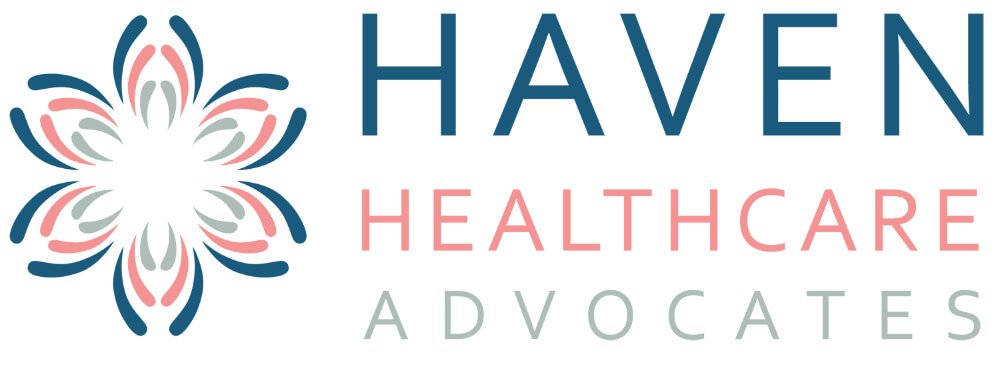Demystifying Healthcare Choices: Medicare vs. Medicare Advantage Plans
When it comes to healthcare coverage for older adults and those with disabilities in the United States, Medicare is a program that often takes center stage. But did you know that within the realm of Medicare, there are two distinct options to consider: Original Medicare and Medicare Advantage plans? In this blog post, we'll explore the key differences between these two healthcare pathways to help you make an informed decision about your coverage.
Understanding Original Medicare
Original Medicare, often referred to as "Traditional Medicare," consists of two main parts: Part A (Hospital Insurance) and Part B (Medical Insurance). Here's a breakdown of what you need to know:
1. Government-Administered Coverage: Original Medicare is administered by the federal government and provides essential health insurance services to eligible individuals. Part A typically comes with no monthly premium, while Part B requires a monthly premium payment.
2. Choice of Providers: One of the notable advantages of Original Medicare is the freedom to choose your doctors, specialists, and hospitals as long as they accept Medicare.
3. Supplemental Coverage: While Medicare covers many medical expenses, there are still out-of-pocket costs such as copayments and deductibles. Many people opt to purchase Medicare Supplement Insurance (Medigap) policies to fill in these financial gaps. We will examine Medigap policies this Friday.
4. Prescription Drug Coverage: Original Medicare does not include prescription drug coverage. To address this, you must enroll in a standalone Medicare Part D prescription drug plan.
5. Lack of Out-of-Pocket Maximum: Original Medicare doesn't cap your annual out-of-pocket expenses, meaning there's no limit to how much you might have to pay for medical services.
Introducing Medicare Advantage Plans
Medicare Advantage plans, also known as Medicare Part C, provide an alternative way to receive healthcare coverage:
1. Private Insurance Plans: Medicare Advantage plans are offered by private insurance companies approved by Medicare. These plans bundle both hospital and medical coverage into a single plan. They must offer at least the same coverage as Medicare, but they often have stricter utilization management and gatekeepers.
2. Network Restrictions: Medicare Advantage plans typically have provider networks. This means you may need to use healthcare providers within the plan's network or pay more for out-of-network care. They also have
3. Extra Benefits: Many Medicare Advantage plans go beyond what Original Medicare offers by providing additional benefits like prescription drug coverage, dental care, vision services, and fitness programs.
4. Out-of-Pocket Limits: One significant advantage of Medicare Advantage plans is the presence of annual out-of-pocket maximums. This means your financial exposure for covered healthcare services is limited, offering financial predictability. Remember they have gatekeepers that may make getting those services more difficult.
5. Cost Variability: The costs associated with Medicare Advantage plans, including premiums, copayments, and deductibles, can vary widely from plan to plan. Some plans even offer low or $0 monthly premiums.
6. Prescription Drug Coverage: Many Medicare Advantage plans include prescription drug coverage (Part D), simplifying your healthcare needs by bundling everything into one plan.
7. Yearly Changes: Be aware that Medicare Advantage plans can change their benefits, network of providers, and costs annually. Therefore, it's crucial to review your plan during the annual enrollment period.
Making Your Decision
Choosing between Original Medicare and a Medicare Advantage plan ultimately depends on your individual healthcare needs, preferences, and budget. Here are some factors to consider when making your decision:
Do you value the flexibility to see any doctor or specialist, or are you comfortable with a network of providers?
What additional benefits, if any, are important to you? This could include prescription drug coverage, dental, vision, and wellness programs.
Are you concerned about out-of-pocket costs and prefer financial predictability with an annual limit?
How does the cost, including premiums and copayments, fit within your budget?
Do you have specific healthcare needs that may be better addressed by one type of plan over the other?
To ensure you make an informed choice, it's advisable to consult with a licensed insurance agent or independent healthcare advocate who can guide you through the process, considering your unique circumstances.
Conclusion
Understanding the differences between Original Medicare and Medicare Advantage plans is pivotal in making the right healthcare choice. Whether you prioritize flexibility, extra benefits, or financial predictability, both options aim to provide you with the healthcare coverage you need to live a healthy and fulfilling life. Ask questions and get good quality information before making an important decision about your healthcare coverage.
At Haven Healthcare Advocates we strive to make sure clients and families have all the information they need, and they understand the information they have, in order to make the best healthcare decisions. We coordinate care to make sure nothing falls between the cracks. Whether someone is faced with a complicated healthcare issue or crisis, caring for an aging or sick parent, caring for a special needs child, transitioning from hospital, to rehab, to home, or is looking for resources or second opinions, our team of nurses is available to help. We provide peace of mind, so families can enjoy time with their loved ones.
To learn more about Haven Healthcare Advocates and the services we provide please visit our website at www.havenhca.com or click here to schedule a consultation.

